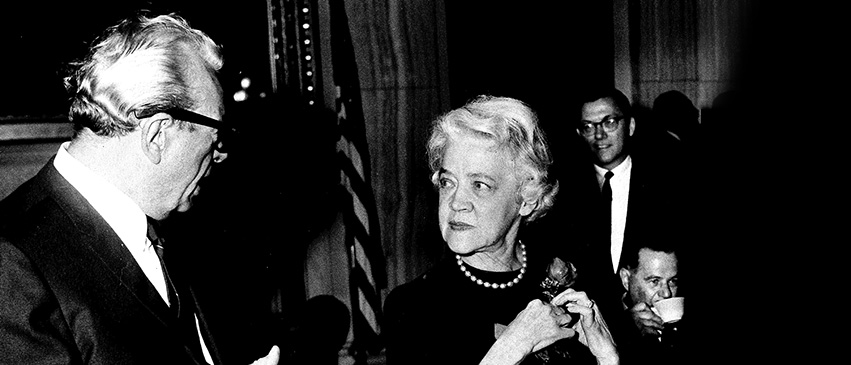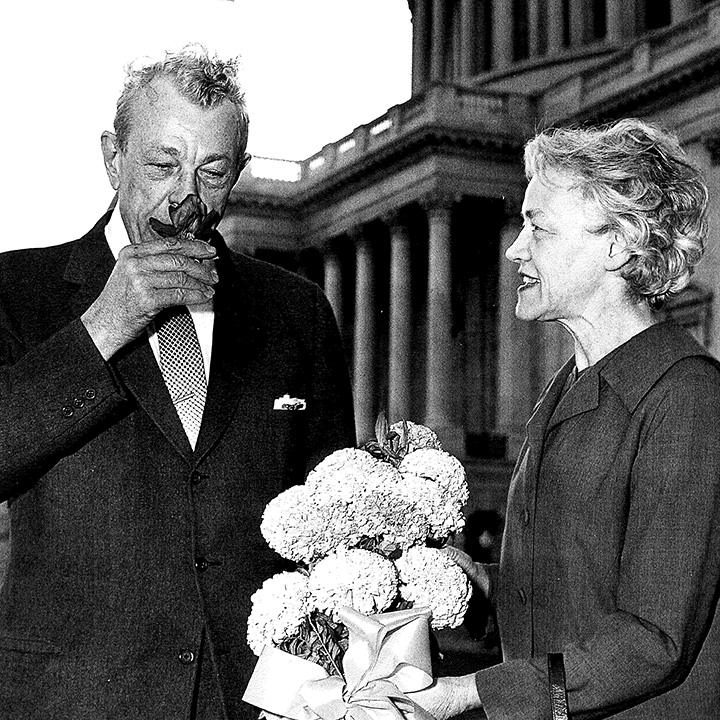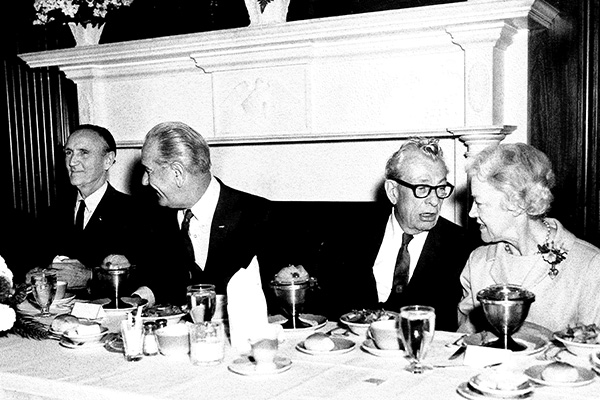
When asked during a 1958 interview whether or not the nation might expect to see a woman president anytime soon, U.S. Senator Margaret Chase Smith (R-Maine) responded: “I don’t think that a woman will be elected president in the near-future, but I do think—it is entirely possible—that a woman will be elected vice president in the foreseeable future, and the vice president is but a hot beat away from being president.” In her answer to a follow-up question, she clarified that she would not be one to consider running for president, because in her mind she “didn’t have a ghost of a chance.”
Bucking Expectations
Margaret Chase Smith was the first woman in American history to serve in both the U.S. House and the U.S. Senate, and to date is still ranked as the longest-serving female Senate Republican. She also did end up running for president in 1964, although she was very much correct in her 1958 prediction that we would not soon see a woman elected president of the United States. However, incorrect was her forecast that the country may instead soon have its very first Madam Vice President, for who would consider well over half a century to be “foreseeable”?

Smith and Everett Dirksen of Pekin served in the U.S. Senate together for most of their careers, and were known to be close personal friends and the most collegial of colleagues. Like Dirksen, Smith had a reputation for voting her conscience first and her party line second. Often, those two factors aligned, though certainly not always.
In fact, it was during a time when Smith boldly departed from her party (and from Dirksen, too) that she first acquired national attention as the first senator to sharply rebuke the emerging culture of “McCarthyism”—and to do so on the Senate floor. What courage it must have taken to recite her now-famous “Declaration of Conscience” in the presence of her Senate colleagues, as both a woman and also a newly elected member of the upper legislative chamber. She was, of course, well aware of the silent expectation that even a person of her own accomplished stature was to be seen and not heard under these circumstances.
Nonetheless, the very petite and aesthetically docile representative from Maine confidently boarded the Senate subway on that morning of June 1, 1950, where she encountered none other than McCarthy himself. “Margaret, you look very serious,” he said. “Are you going to make a speech?” “Yes,” she replied without hesitation, “and you will not like it.”
Declaration of Conscience
There are many memorable excerpts and lessons from Smith’s floor speech that day, and most of them offer a remarkably timeless wisdom that runs parallel to the events of 2020. After outlining her case for why she believed the country so desperately needed Republican leadership, she concluded those remarks with an important distinction:
“Surely, these are sufficient reasons to make it clear to the American people that it is time for a change and that a Republican victory is necessary to the security of the country. Yet to displace it with a Republican regime embracing a philosophy that lacks political integrity or intellectual honesty would prove equally disastrous to the nation. The nation sorely needs a Republican victory. But I do not want to see the Republican party ride to political victory on the Four Horsemen of Calumny—Fear, Ignorance, Bigotry and Smear.”

Not surprisingly, her performance was met with both sensational praise and vicious ridicule. Senator McCarthy’s response, for example, was to begin publicly referring to Mrs. Smith and a handful of her Republican co-signers as “Snow White and the Six Dwarfs.”
Thankfully, this episode did not deter or discourage Margaret Chase Smith, and by 1954, she gracefully assumed her mantle upon the “right” side of history when, at long last, the full Senate censured McCarthy for his harmful and unbecoming behavior. McCarthy’s career was over, and Smith’s was just beginning. Henceforth, her long and influential time in Washington remained an important embodiment of the old saying that “a lie has speed, but the truth has endurance.”
May her legacy of courageous and principled leadership continue to reach and inspire an all-new generation of influential women. PM
Tiffany White is director of the Dirksen Congressional Center, a nonpartisan, not-for-profit organization working to enhance the public’s understanding of Congress, its people and its policies. It is named after the late Senate Minority Leader from Pekin, Everett McKinley Dirksen.
- Log in to post comments

